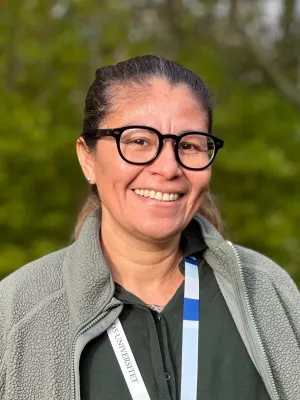
Carolina Rodriguez
Postdoc

Sustainability of Diversified Organic Cropping Systems—Challenges Identified by Farmer Interviews and Multi-Criteria Assessments
Author
Summary, in English
Diversification of cropping and farming systems is a central agroecological principle, which may improve resource use efficiency, reduce pests and diseases, diversify income sources, and enhance the resilience of the production. The main objective of this study was to identify challenges related to the sustainability of organic cropping systems that were diversified according to one or several of the following practices: diverse crop rotation, integration of cover crops, and intercropping. The sustainability assessments were made using a multi-criteria decision aid method (MCDA) and a framework based on the FAO Sustainability Assessment of Food and Agricultural Systems (SAFA) guidelines. Social, economic and environmental aspects were integrated in the sustainability assessments and combined with semi-structured interviews to identify and discuss farmer's perceptions of barriers to crop diversification and sustainability transition. The results showed that diversified organic cropping systems could achieve high overall sustainability, especially in the environmental dimension thanks to non-inputs of pesticides or mineral fertilizers and efficient use of resources. On the other hand, social and economic dimensions were more variable, with challenges of lower sustainability in profitability and management complexity for several of the diversified cropping systems. Limited access to knowledge, technology and markets for minor crops, and concerns about the consistency of policies were highlighted by farmers as barriers for crop diversification. We discuss how the identified challenges can be overcome and argue that fostering collaboration among stakeholders may increase investment capacity and improve access to new or alternative markets, thereby stimulating transitions toward more diversified and sustainable cropping systems.
Department/s
- Department of Strategic Communication
Publishing year
2021-09-23
Language
English
Publication/Series
Frontiers in Agronomy
Volume
3
Document type
Journal article
Publisher
Frontiers Media S. A.
Topic
- Environmental Sciences related to Agriculture and Land-use
Keywords
- cover crops
- crop diversification
- crop rotation
- ex ante
- farmers' perceptions
- intercropping
- mixed methods
- sustainability assessments
Status
Published
ISBN/ISSN/Other
- ISSN: 2673-3218